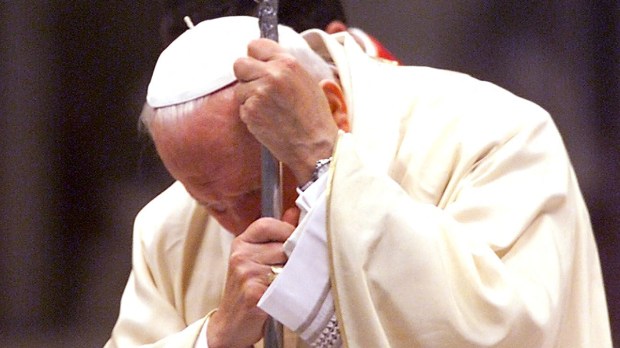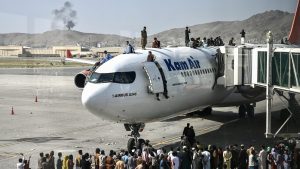In 2002 St. John Paul II wrote his annual message for the World Day for Peace when the war in Afghanistan was only just beginning.
He was saddened by the tragedy of 9/11, but also worried by the global response to terrorist organizations.
On one hand, St. John Paul II did recognize the right to defend one’s country from terrorism.
There exists therefore a right to defend oneself against terrorism, a right which, as always, must be exercised with respect for moral and legal limits in the choice of ends and means. The guilty must be correctly identified, since criminal culpability is always personal and cannot be extended to the nation, ethnic group or religion to which the terrorists may belong.
Yet, he also believed military defense was not the only option. He advocated for the elimination of the root causes of terrorist organizations.
International cooperation in the fight against terrorist activities must also include a courageous and resolute political, diplomatic and economic commitment to relieving situations of oppression and marginalization which facilitate the designs of terrorists. The recruitment of terrorists in fact is easier in situations where rights are trampled upon and injustices tolerated over a long period of time.
Terrorist organizations will be bred in situations of oppression and poverty. If the underlying conditions of terrorism are not rooted out, it will only come back even stronger.
Furthermore, terrorism must not be endorsed by any religion or moral leader.
The various Christian confessions, as well as the world’s great religions, need to work together to eliminate the social and cultural causes of terrorism. They can do this by teaching the greatness and dignity of the human person, and by spreading a clearer sense of the oneness of the human family. This is a specific area of ecumenical and interreligious dialogue and cooperation, a pressing service which religion can offer to world peace.
In particular, I am convinced that Jewish, Christian and Islamic religious leaders must now take the lead in publicly condemning terrorism and in denying terrorists any form of religious or moral legitimacy.
Above all, the road to peace can only be established through forgiveness.
By contrast, the failure to forgive, especially when it serves to prolong conflict, is extremely costly in terms of human development. Resources are used for weapons rather than for development, peace and justice. What sufferings are inflicted on humanity because of the failure to reconcile! What delays in progress because of the failure to forgive! Peace is essential for development, but true peace is made possible only through forgiveness.
Terrorist organizations will continue to thrive in the world until peace and reconciliation can be established and the root causes of terrorism are eliminated.



